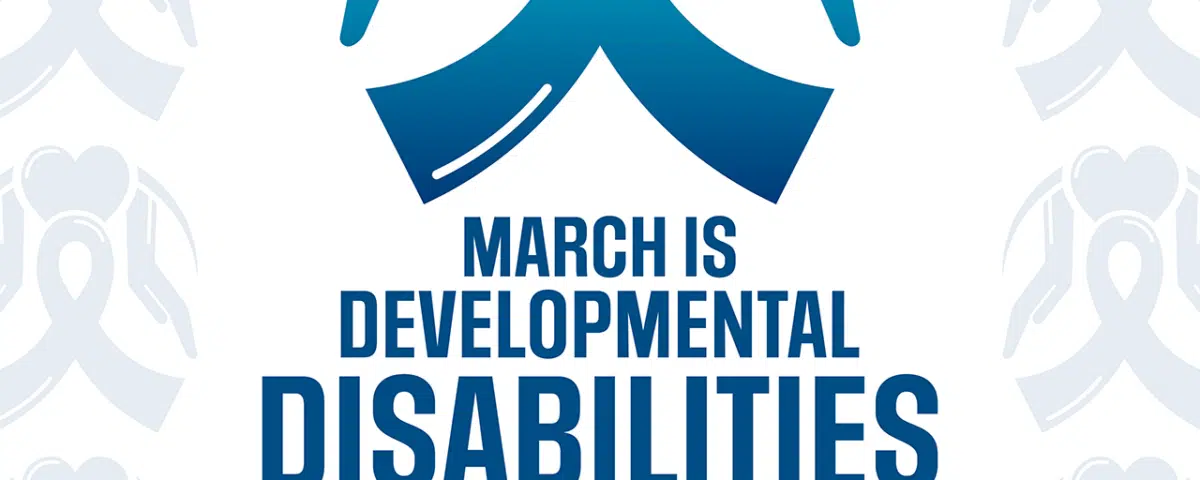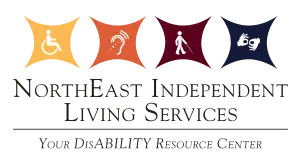
One out of every four individuals with disabilities resides in poverty, encountering formidable barriers blocking their access to employment, education, skill enhancement, financial services, and complete engagement within their communities, according to the National Disability Institute. It is important that policies, societal expectations, and support services undergo transformation to enhance the well-being of those with disabilities who are grappling with poverty. For that reason, we promote Developmental Disabilities Awareness Month in March in an effort to increase public awareness, understanding, and acceptance of developmental disabilities.
Developmental Disabilities Awareness Month acts as a platform for fostering a more inclusive and compassionate society. Increased visibility helps reduce stigma, discrimination, and misconceptions surrounding disability. DDAM serves as an opportunity to shed light on the challenges faced by individuals with developmental disabilities and to advocate for their rights and inclusion in all aspects of society.
In this blog, NEILS intends to amplify the voices of those impacted by developmental disabilities. Through insightful narratives, we work to raise awareness, promote understanding, and foster empathy in our community.
Understanding Developmental Disabilities
According to the CDC, developmental disabilities are a group of conditions due to an impairment in physical, learning, language, or behavior areas. These conditions may begin during the developmental period of a young individual and could impact day-to-day functions, usually lasting throughout a person’s lifetime. It’s important to note that disabilities can be complex and multifactorial, often resulting from a combination of genetic, environmental, and social influences.
Common misconceptions about individuals with disabilities say that they are incapable of leading fulfilling lives, that they are a burden on society, that they lack intelligence or competence, that their disabilities define their worth or potential, and they are all the same or require pity rather than respect and inclusion. These misconceptions overlook the diversity, resilience, and very real abilities of individuals with disabilities and unfortunately perpetuate stereotypes that hinder their inclusion and participation in society.
Impact on Individuals and Families
A disability can demand an unequal portion of a family’s time, energy, and financial resources, often leaving other individual and family needs unaddressed. Families and individuals may face higher levels of family stress, curtailed employment opportunities, elevated emotional instability, and many other hardships. In other words, families caring for a child or individual with disabilities often experience significantly higher rates of chronic stress, as measured by employment, economic and emotional indicators.
Do the following challenges sound familiar?
- Waitlists and limited access to services
- Financial strain
- Social isolation
- Barriers to education
- Healthcare disparities
- Caregiver burnout
- Legal and advocacy issues
If you support or advocate for individuals with a disability, get to know them — understand their stories just as you would any other colleague or peer. Seek their consent when trying to help them — they often will give the cues. For instance, if a person with visual difficulty starts moving, ask them if they need support without instantly assuming they need it. Be an ally and support their success.
Too often, those with disabilities are advocated for, but are not invited or expected to be their own advocates. But those with disabilities have so much to say! They have plenty of ideas and know what they need, they just need a boost of support.
We are here to create a safe space in our community where individuals feel respected enough to share their needs. It is up to all of us to remember the presence of a disability does not define an individual’s capabilities or potential, and with appropriate support and accommodations, many people with disabilities lead fulfilling and meaningful lives.
Promoting Inclusivity and Accessibility
Including people with disabilities in everyday activities and encouraging them to have roles similar to their peers who do not have a disability is disability inclusion. It goes beyond mere encouragement; it necessitates the implementation of effective policies and practices within communities or organizations. Inclusion aims to enhance participation in socially expected roles and activities, such as being a student, employee, friend, community member, patient, spouse, partner, or parent.
Education serves as the cornerstone of inclusion for individuals with disabilities. Starting from the enactment of the Individuals with Disabilities Education Act in 1975 and continuing through the No Child Left Behind Act of 2001, every person with a disability is afforded equal access to educational opportunities. Click here to find a series of resources from the State of Missouri Disability Portal. NEILS also offers complimentary Disability Awareness Presentations tailored for any organization, school, or group. For children, we utilize dolls representing various disabilities to illustrate their abilities and similarities with other children. For older audiences, we conduct presentations accompanied by handouts and additional resources. Each program is personalized, engaging, and interactive, aiming to celebrate diversity and foster understanding.
Without advocacy and support, many voices of individuals with disabilities would remain silenced. Together we can work toward eliminating discrimination and obstacles encountered by those with disabilities when seeking essential services and participating in community life. Through advocacy efforts, societal attitudes can be transformed, and awareness about disability issues heightened, ultimately this can result in improved access to education, employment, and community engagement.
In Conclusion
At NEILS, we offer a variety of services focused on bringing people together, including Disability Awareness Programs and Peer Support. Our vision is to be accessible for all people and for our communities to foster and promote acceptance and diversity.
March and Developmental Disabilities Awareness Month has come and gone, but the need for awareness is ongoing. Ready to schedule your free Disability Awareness Presentation? Contact us today or call 573-221-8282.
